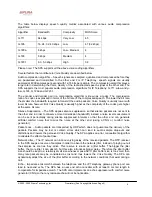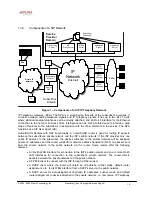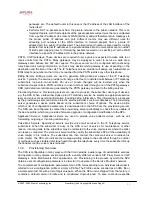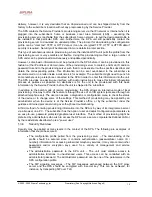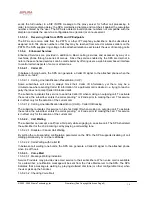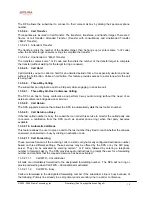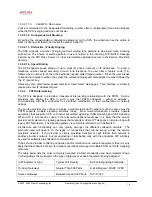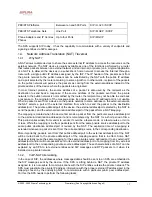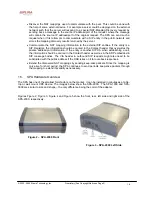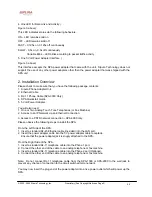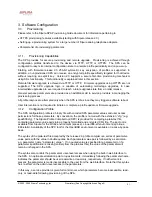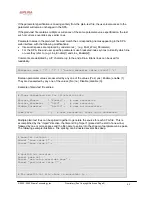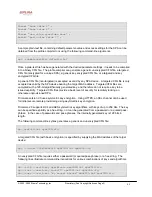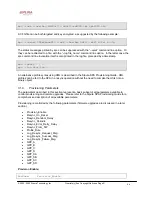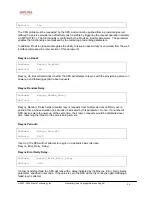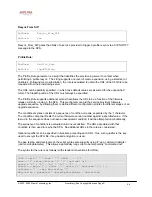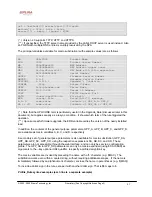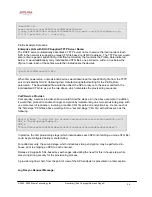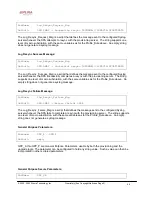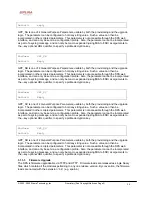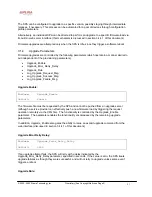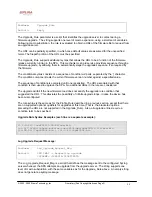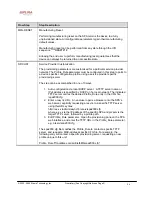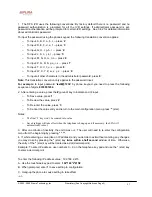
© 2003 - 2005 Sipura Technology, Inc
Proprietary (See Copyright Notice on Page 2)
22
If the parameter specification is missing entirely from the plain-text file, the user-level access to the
parameter will remain unchanged in the SPA.
If the plain-text file contains multiple occurrences of the same parameter-value specification, the last
such occurrence overrides any earlier ones.
Parameter names in the plain-text file must match the corresponding names appearing in the SPA
web interface, with the following modifications:
•
Inter-word spaces are replaced by underscores ‘_’ (e.g. Multi_Word_Parameter).
•
For the SPA, line and user specific parameters use bracketed index syntax to identify which line
or user they refer to (e.g. Line_Enable[1] and Line_Enable[2]).
Comments are delimited by a ‘#’ character up to the end-of-line. Blank lines can be used for
readability.
Parameter_name [ ‘?’ | ‘!’ ] [“quoted_parameter_value_string”] ‘;’
Boolean parameter values are asserted by any one of the values {Yes | yes | Enable | enable | 1}.
They are deasserted by any one of the values {No | no | Disable | disable | 0}.
Example of plain-text file entries:
# These parameters are for illustration only
Feature_Enable ! “Enable” ; # user read-write
Another_Parameter ? “3600” ; # user read-only
Hidden_Parameter “abc123” ; # user not-accessible
Some_Entry ! ; # user read-write, leave value unchanged
Multiple plain text files can be spliced together to generate the source for each CFG file. This is
accomplished by the “import” directive: the literal string “import” (placed at the start of a new line)
followed by one or more spaces and the file name to splice into the stream of parameter-value pairs.
The following example illustrates. File splicing can be nested several files deep.
# base.txt contains . . .
Param1 “base value 1” ;
Param2 “base value 2” ;
. . .
# spa1234.txt contains . . .
import base.txt
Param1 “new value overrides base” ;
Param7 “particular value 7” ;
. . .
# The spa1234.txt file above is equivalent to . . .

